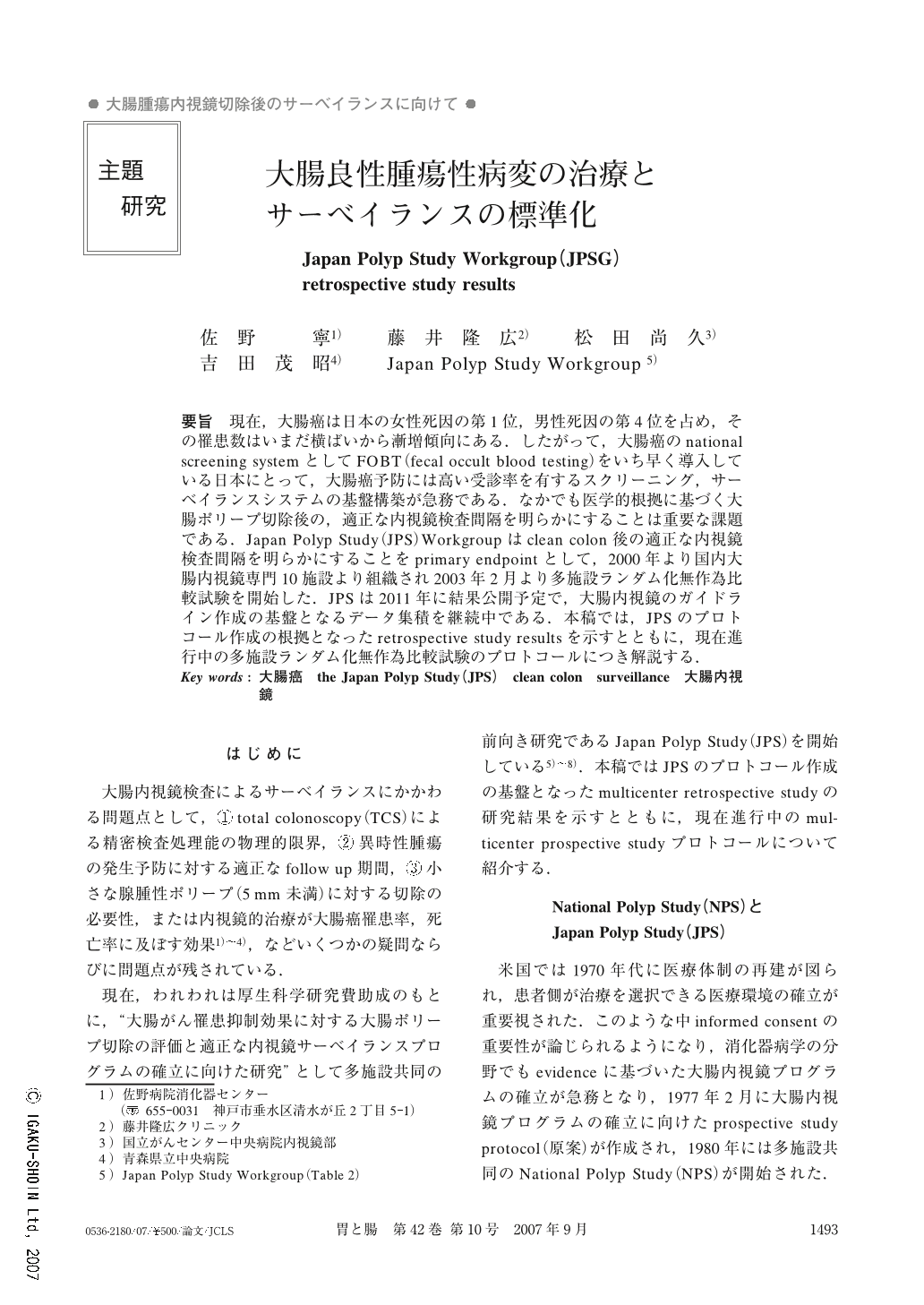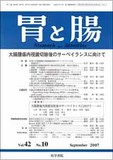Japanese
English
- 有料閲覧
- Abstract 文献概要
- 1ページ目 Look Inside
- 参考文献 Reference
要旨 現在,大腸癌は日本の女性死因の第1位,男性死因の第4位を占め,その罹患数はいまだ横ばいから漸増傾向にある.したがって,大腸癌のnational screening systemとしてFOBT(fecal occult blood testing)をいち早く導入している日本にとって,大腸癌予防には高い受診率を有するスクリーニング,サーベイランスシステムの基盤構築が急務である.なかでも医学的根拠に基づく大腸ポリープ切除後の,適正な内視鏡検査間隔を明らかにすることは重要な課題である.Japan Polyp Study(JPS)Workgroupはclean colon後の適正な内視鏡検査間隔を明らかにすることをprimary endpointとして,2000年より国内大腸内視鏡専門10施設より組織され2003年2月より多施設ランダム化無作為比較試験を開始した.JPSは2011年に結果公開予定で,大腸内視鏡のガイドライン作成の基盤となるデータ集積を継続中である.本稿では,JPSのプロトコール作成の根拠となったretrospective study resultsを示すとともに,現在進行中の多施設ランダム化無作為比較試験のプロトコールにつき解説する.
Colorectal cancer is the third greatest cause of cancer mortality, and the incidence of colorectal cancer in Japan is increasing gradually. To reduce colorectal cancer mortality, a higher compliance for colorectal cancer screening and follow-up programs is needed. Consequently, it is necessary to establish firm recommendations based on strong evidence from post-polypectomy colonoscopic surveillance. The Japan Polyp Study (JPS) began in 2000, and its objective is to evaluate follow-up surveillance strategies in patients who have undergone two complete colonoscopies for the control of colorectal cancer, with the removal of all detected polyps by high-resolution chromoendoscopy, including the removal of flat or superficial depressed (0-IIc) lesions. The JPS is scheduled to continue until the year 2010, and future data will help to develop recommendations for surveillance guidelines for such patients.

Copyright © 2007, Igaku-Shoin Ltd. All rights reserved.


